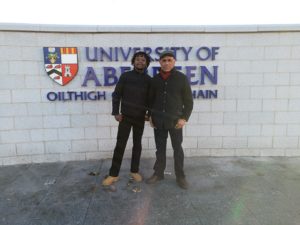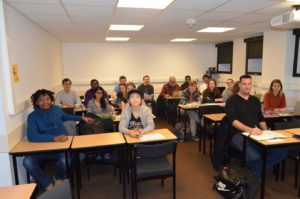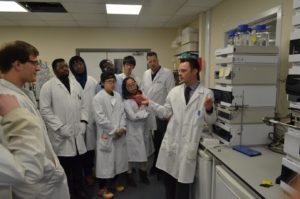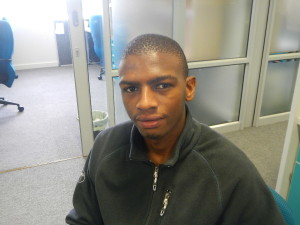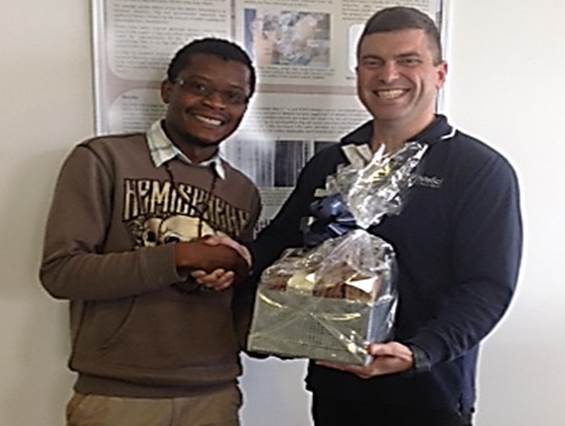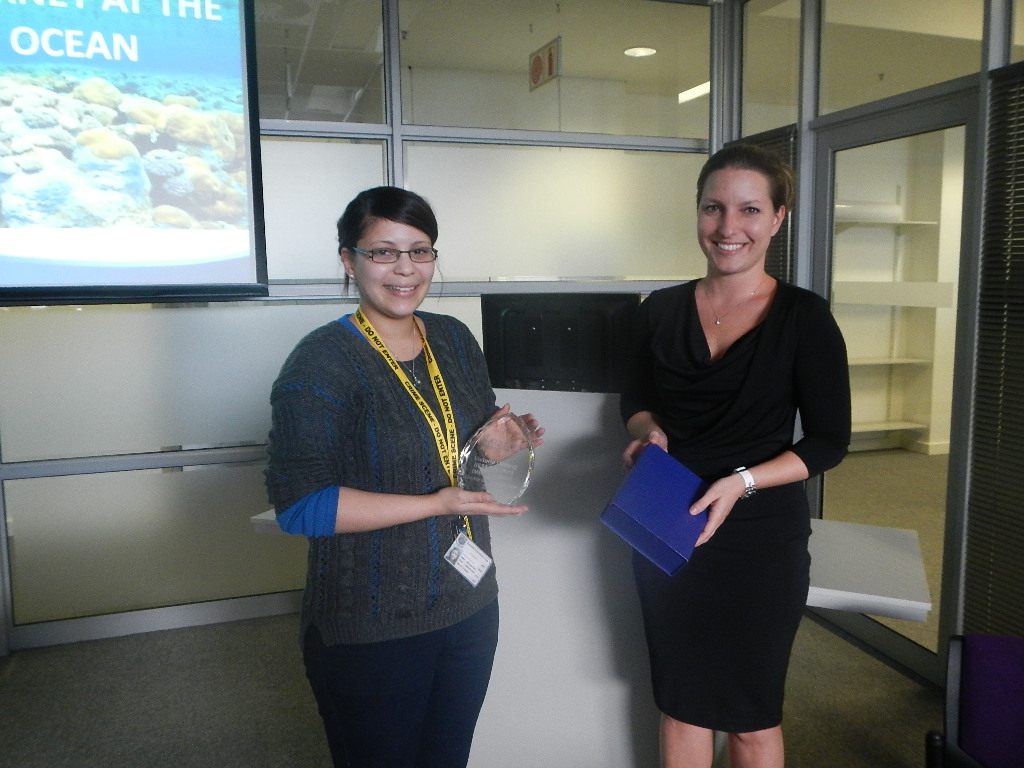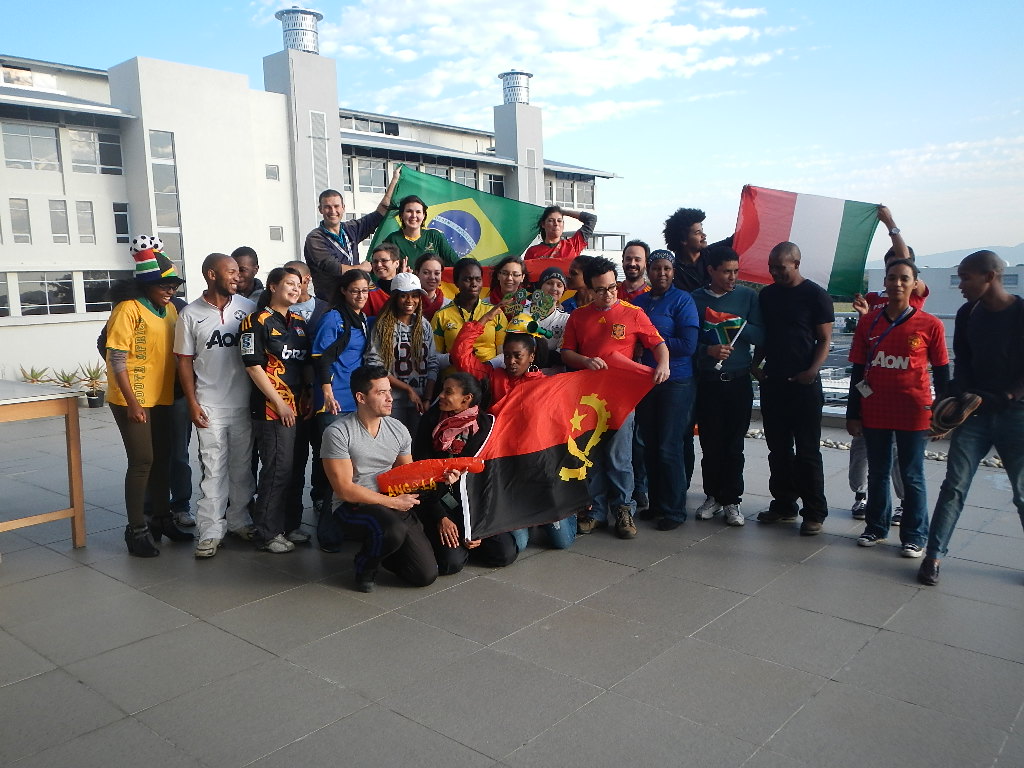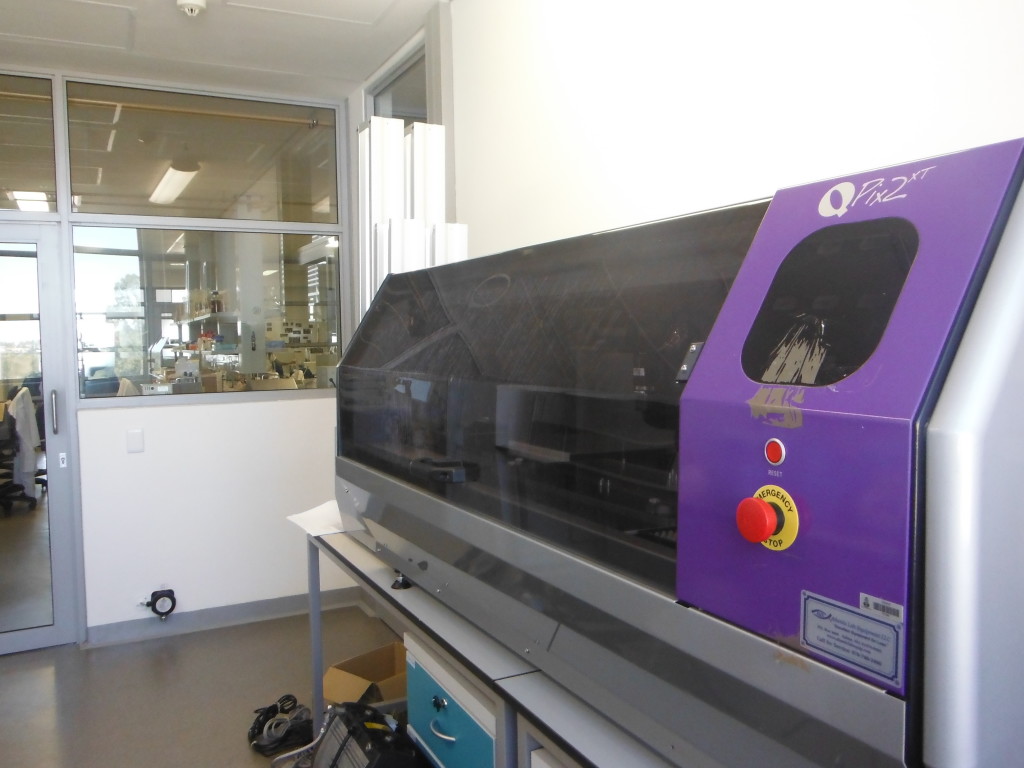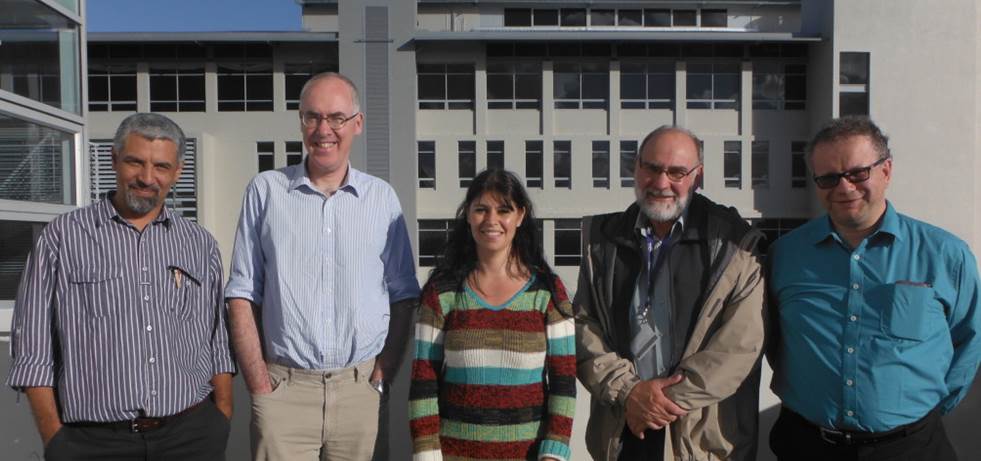Institute for microbial Biotechnology and Metagenomics
IMBM, Core2, Life Science Building,
University of the Western Cape,
Robert Sobukwe rd.,
Bellville,
7535,
Cape Town,
South Africa,
Tel: +27 21 9599725-
News
- IMBM’s Dr. Elzaan Booysen awarded R1-million grant towards water remediation project
- Done and Dusted – UWC Flow cytometry course 2024
- Microbial Biobank Provides Training Opportunities for the Next Generation of Microbial Biotechnologists
- 1 June 2024, the official start of an exciting multi-national Green ERA-Hub project, AMD-Gas in maize.
- DIPLOMICS launches 1KSA initiative with IMBM as one of the core labs
Twitter
DIPLOMICS
BlueRemediomics
Prof Marla Trindade speaks during a press conference held at the “In my skin” exhibition presented by L’Oreal in Paris about the future of microbiome research (https://tinyurl.com/y6bff4d9)
Posted in Home Page
Leave a comment
IMBM awarded two grants: SA-Germany and SA-France
IMBM was awarded two bilateral grants. One program is aimed at furthering work on a biosurfactant produced by an enzyme identified through screening of metagenomic libraries (SA-Germany; Dr. Anita Burger). The second program (SA-France; Prof Marla Trindade) is to develop phage-based therapies targeting the entomopathogenic bacterium Paenibacillus larvae responsible for American Foulbrood disease affecting honeybees as well as knocking out the plant pathogenic bacterium (Xylella fastidiosa) found on olive trees. Both programs will see researchers from their respective countries exchange for a period of two months to perform either sampling for phages (SA-France) or training (SA-Germany) with respect to construction and screening of metagenomic libraries and characterization of biosurfactants. Both programs are set to start early in 2017.
Posted in Home Page
Leave a comment
IMBM student exchange: University of Aberdeen
As part of the Ocean Medicines program, Jatro Kulani Mhlongo one of the IMBM PhD students went on a four month exchange to the University of Aberdeen (Marine Biodiscorvery centre) in Scotland. The main purpose of the exchange was to learn about purification and structure elucidation of natural products. A number of techniques and processes were presented during the course of the exchange program such as solid phase extraction (SPE), Liquid–liquid partitioning, Size exclusion liquid chromatography, reverse phase high pressure liquid column chromatography (HPLC), nuclear magnetic resonance spectroscopy (NMR), and High resolution mass spectroscopy (HRMS). Data processing software training such as the use of Mestrenova and Xcalibur for processing of NMR and HRMS data, which are essential for successful structural elucidation of organic compounds, was also provided. Kulani was further fortunate enough to attend two workshops on NMR for structural elucidation and HPLC for the purification of chiral compounds during his stay there.
Exchange programs such as these enable the transfer of expertise to the specific student, but also those in the laboratory involved with similar research back home. Having just returned in early January 2017, Kulani will now be in a good position to help those in IMBM working on related projects and to elucidate those ever elusive structures.
Posted in Home Page
Leave a comment
IMBM NRF-intern wins Fulbright Foreign Student scholarship
Lungelo Mandyoli, an NRF intern in IMBM, applied for and won a Fulbright Forgein Student scholarship to pursue his PhD studies in structural biology in the USA. The Fulbright Program, is an American scholarship program of competitive, merit-based grants for international educational exchange for students, scholars, teachers, professionals, scientists and artists, founded by United States Senator J. William Fulbright in 1946. Under the Fulbright Program, competitively selected American citizens may become eligible for scholarships to study, conduct research, or exercise their talents abroad; and citizens of other countries may qualify to do the same in the United States of America. The program was established to increase mutual understanding between the people of the United States and other countries through the exchange of persons, knowledge, and skills. It is one of the most prestigious scholarships in the world.
Lungelo will be leaving IMBM in August 2017 to pursue his studies abroad.
Posted in Home Page
2 Comments
Relebohile Matobole wins a poster prize at the annual UWC Science faculty research open day 2014
Hard work pays off, as demonstrated by Relebohile Matobole (MSc student in IMBM) who walked off with a poster prize at the UWC Science faculty research open day held on Tuesday 28 October 2014. His work showed how microbes isolated from South African sea sponges could be induced to produce antimicrobial compounds under different growth conditions which would not be identified under normal screening conditions.
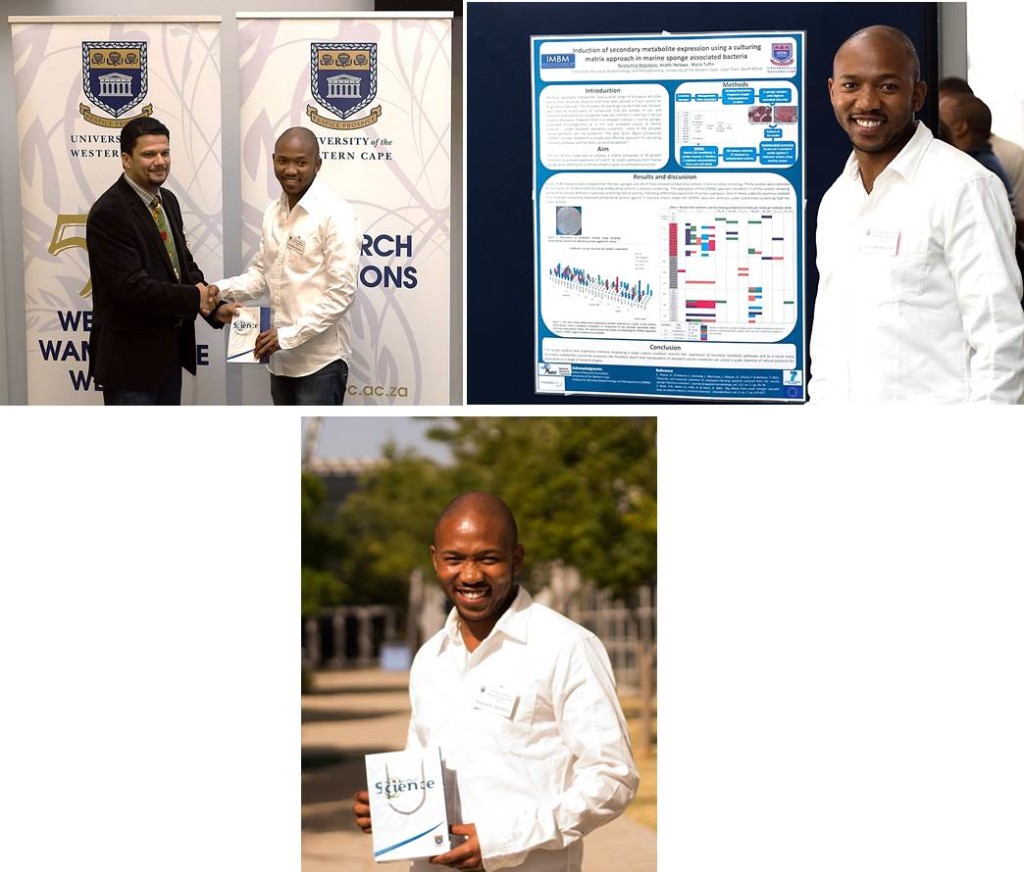
Congratulations Rele, you did us proud !
As luck would have it, Kulani Mhlongo (PhD student in IMBM) also won a hamper from Whitehead Scientific. Thank you to Whitehead and congratulations Kulani !
Posted in Home Page
Leave a comment
Victoria Ontong Wins Top Third Year Student Prize from Merck
Victoria Ontong won the prize for the best third year student at UWC Biotechnology. She won a cash prize and trophy presented by Merck representative, Tamara Fedderke. Congrats!
Posted in Home Page
Leave a comment
IMBM celebrates the World Cup 2014
On the 12th of June 2014 the Soccer World Cup kicked off and IMBM was in a celebratory mood ! We took the opportunity to get all the lab members together for a kick-off party on the 13th with Nacho’s, Pão de queijo’s, Caipirinha’s and a few Corona’s (Mexico vs Cameroon in Brazil :)) before watching the first few games together. What a team !!
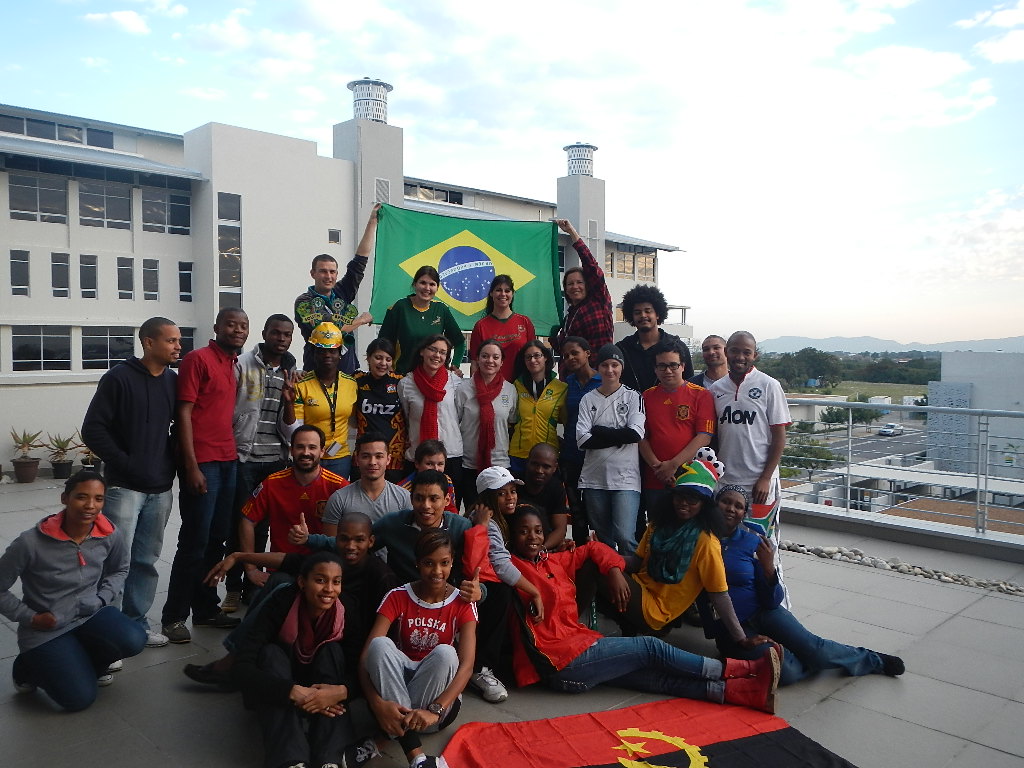
Posted in Home Page
Leave a comment
Ask and ye shall receive….
IMBM is now the proud host of a Q-Pix 2 colony picking robot, named Pixie. A conversation between Assoc. Prof. Marla Tuffin and Prof Esta van Heerden at UFS (Grant holder for the Q-Pix 2), asking if IMBM could use their robot for library screening, ended with an agreement to ship the underused robot to IMBM where it could be put to work immediately on a variety of metagenomic based projects and in the process establishing a new collaboration between the two labs. IMBM has in the past made use of the same class of robot hosted by CSIR in Pretoria for screening of large metagenomic libraries.
This together with a newly purchased MicroFill Microplate Dispenser enhances the Institutes ability to screen metagenomic libraries in a high throughput manner and complements the programs which are underway to develop in vitro screening platforms.
Posted in Home Page
Leave a comment
Pharmasea international guests present at the Dean’s Frontiers Lecture
Professor Marcel Jaspars and Dr. Rainer Ebel from the Marine Biodiscovery Centre, University of Aberdeen presented their work in discovery of secondary metabolites from marine and extremophilic sources. The natural chemical diversity from unexplored environments is being used to combat infectious diseases that are increasingly resistant to the current generation of antibiotics.
Posted in Home Page
Leave a comment
PharmaSea in the news !
“Antibiotic abyss: The extreme quest for new medicines”
This is the title of the recently (27 Jan 2014) published New Scientist article showcasing the PharmaSea project which aims to explore extreme marine habitats to discover novel antibiotics. IMBM is a proud partner of the program launched in October 2012 (see IMBM involved in €9m EU-project below). Follow the link below to read the full article.
http://www.newscientist.com/article/mg22129530.800-antibiotic-abyss-the-extreme-quest-for-new-medicines.html#.UuN8kvT8IaQ.
Posted in Home Page
Leave a comment


